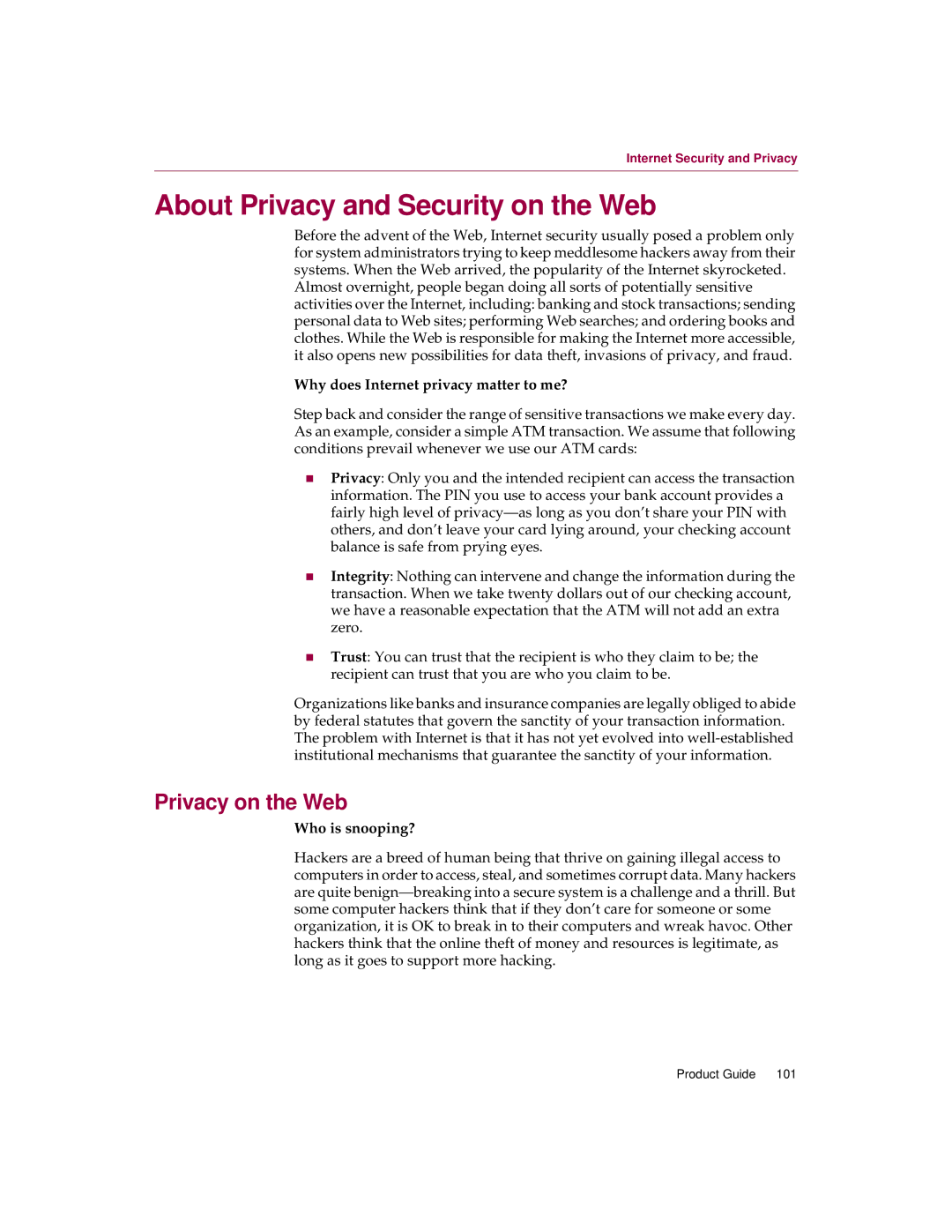Internet Security and Privacy
About Privacy and Security on the Web
Before the advent of the Web, Internet security usually posed a problem only for system administrators trying to keep meddlesome hackers away from their systems. When the Web arrived, the popularity of the Internet skyrocketed.
Almost overnight, people began doing all sorts of potentially sensitive activities over the Internet, including: banking and stock transactions; sending personal data to Web sites; performing Web searches; and ordering books and clothes. While the Web is responsible for making the Internet more accessible, it also opens new possibilities for data theft, invasions of privacy, and fraud.
Why does Internet privacy matter to me?
Step back and consider the range of sensitive transactions we make every day. As an example, consider a simple ATM transaction. We assume that following conditions prevail whenever we use our ATM cards:
nPrivacy: Only you and the intended recipient can access the transaction information. The PIN you use to access your bank account provides a fairly high level of
nIntegrity: Nothing can intervene and change the information during the transaction. When we take twenty dollars out of our checking account, we have a reasonable expectation that the ATM will not add an extra zero.
nTrust: You can trust that the recipient is who they claim to be; the recipient can trust that you are who you claim to be.
Organizations like banks and insurance companies are legally obliged to abide by federal statutes that govern the sanctity of your transaction information. The problem with Internet is that it has not yet evolved into
Privacy on the Web
Who is snooping?
Hackers are a breed of human being that thrive on gaining illegal access to computers in order to access, steal, and sometimes corrupt data. Many hackers are quite
Product Guide 101
